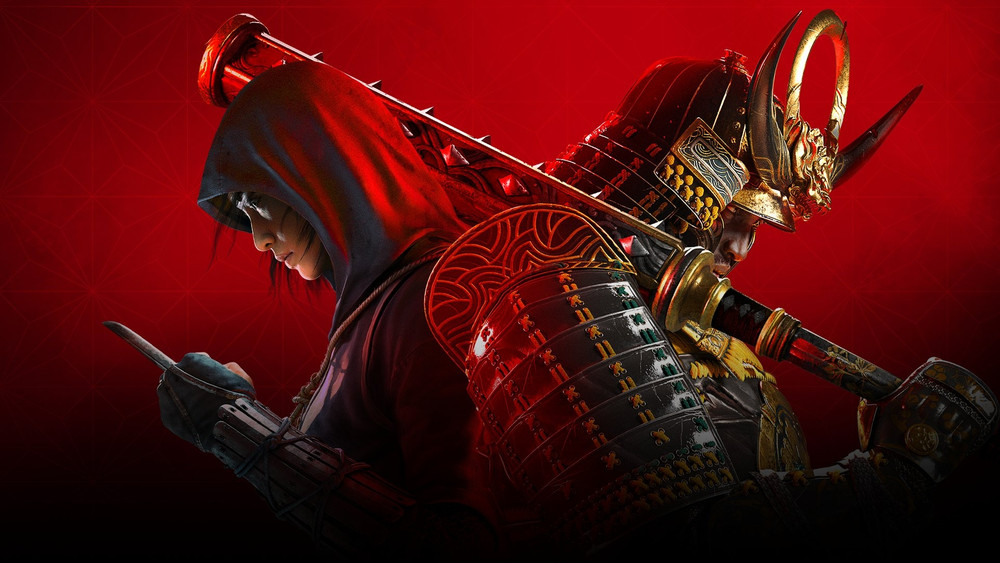With its gripping story and captivating characters, Assassin’s Creed Shadows promises to leave a lasting impact on the franchise. As longtime fans, we know that a good narrative is crucial to an Assassin’s Creed game, and Shadows appears to be upping the ante. From what we’ve seen so far, Ubisoft is making a bold addition to the series, focusing on ambitious storytelling set in a unique and compelling historical context.

- The world is set in 16th-century feudal Japan, where cherry blossoms, bamboo forests, and historic castles are found.
Assassin’s Creed Shadows isn’t just about stealth and action; it’s about immersing ourselves in a world filled with intrigue, revenge, and redemption. As players, we’re drawn to stories that resonate with us, and the early glimpses of the characters and plot suggest a game that will leave us pondering the nuances of power, loyalty, and the very nature of justice. In this article, we’ll explore how Assassin’s Creed Shadows advances the franchise’s narrative with fresh themes, a unique setting, and deeper connections to its lore.
1. Setting the Stage: Where and When Does Assassin’s Creed Shadows Take Place?
Set in late 16th-century Japan, specifically starting in 1579 during the Azuchi-Momoyama period , Assassin’s Creed Shadows transports us to a time of intense civil war and political upheaval . This era marks the final stage of the Sengoku period, a tumultuous time in Japanese history, setting the stage for power struggles and cultural clashes . Having this backdrop immediately adds a layer of depth, especially given the real-world events that are interwoven into the game.
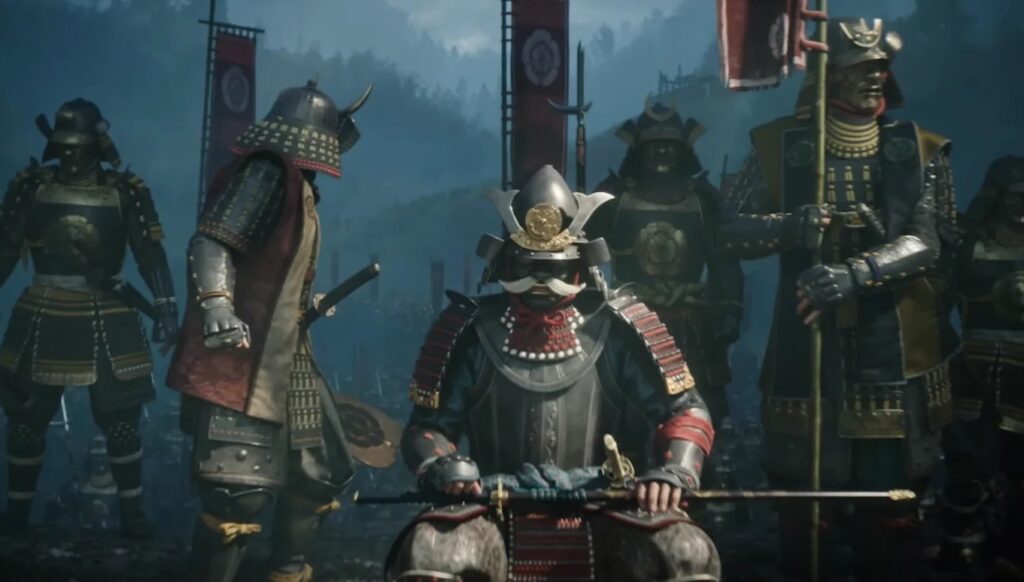
- In Assassin’s Creed Shadows, you can hide in tall grass, extinguish torches to create darkness, crawl under floors, and even use sound and light to distract.
Integrating historical events, such as Oda Nobunaga’s suppression of the Iga ninja clans and the rise of Tokugawa Ieyasu, enhances the narrative, making the game world feel authentic and lived-in. This setting is significant, not just for its aesthetic appeal, but also for how it influences the factions, conflicts, and alliances within the game. By grounding the story in real history, Shadows creates opportunities for exploration and discovery that feel both educational and engaging.
Real-world locations, like Kyoto, Osaka, and the Iga Province, are meticulously recreated, and you can expect Ubisoft to integrate these locales seamlessly into the story. As you explore these environments, you’ll find that the historical setting not only enriches the gameplay but also allows for a deeper understanding of the complex political landscape of the time. It is exciting to see them capture all these details since we can immerse ourselves even more into the world of Assassin’s Creed.
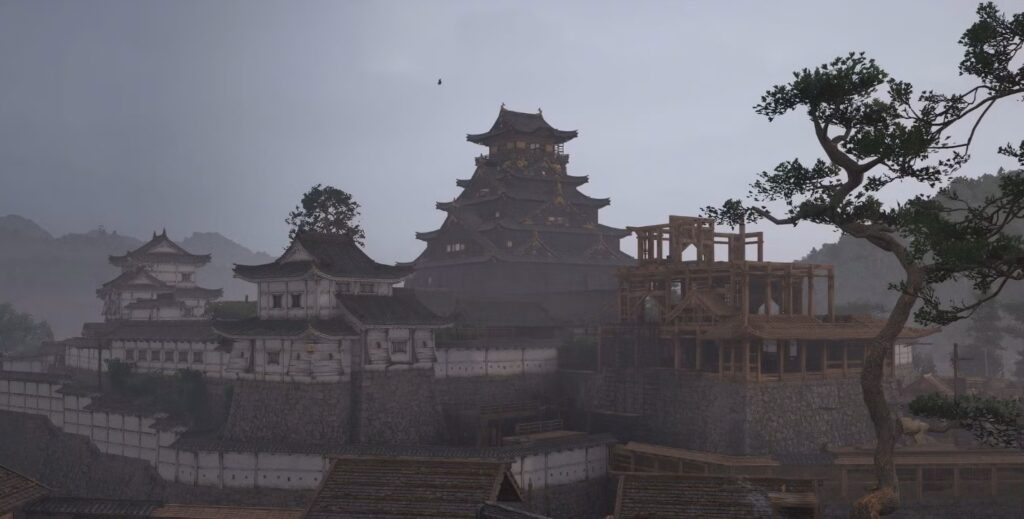
- Navigate a dynamic open world where changing seasons affect environments and stealth tactics.
2. The Plot: Shadows in the Conflict Between Assassins and Templars
1. Central Narrative Themes
Diving into the heart of the Assassin’s Creed Shadows plot, several overarching themes quickly become apparent: deception, betrayal, revenge, and redemption. It’s the kind of high-stakes storytelling we love, where allegiances are constantly tested, and characters must grapple with difficult moral choices. The themes tie directly into gameplay mechanics, shaping character motivations and influencing how we approach missions.
2. The Role of the Assassins
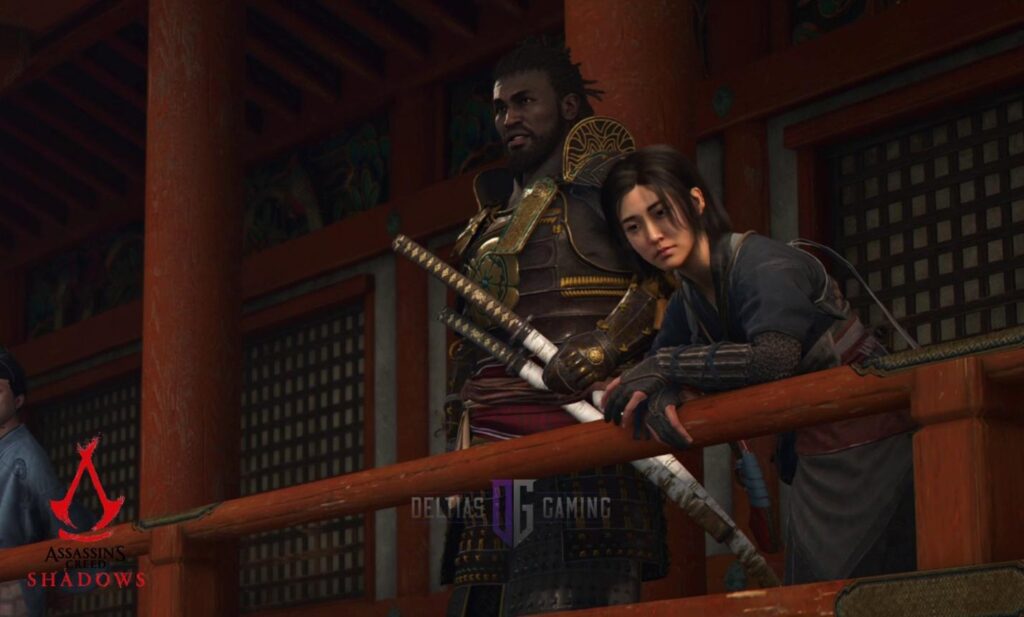
- Navigate a dynamic open world where changing seasons affect environments and stealth tactics.
The Assassins’ position in Shadows is nuanced, and their goals evolve throughout the installment . The initial conflict between Naoe and Yasuke is born over a box, a detail that instantly piques our interest since, as fans, we know this could imply something much bigger . As we delve deeper, we see that their roles are not simply idealistic; they are often morally ambiguous, forcing us to question their methods and motivations.
3. The Role of the Templars
Conversely, the Templars in Shadows are presented in ways that challenge our expectations. Rather than being simple villains, they are complex figures with their own agendas, trying to manipulate events for power and influence Through these complex portrayals, Assassin’s Creed Shadows builds on familiar Assassin-vs-Templar dynamics, while introducing fresh twists that keep the story engaging.
It’s intriguing to witness these key conflicts and turning points that drive the story forward. By exploring the nuances of each faction, Shadows adds layers of depth that make the narrative both familiar and refreshingly new. We can’t wait to experience these conflicts firsthand.
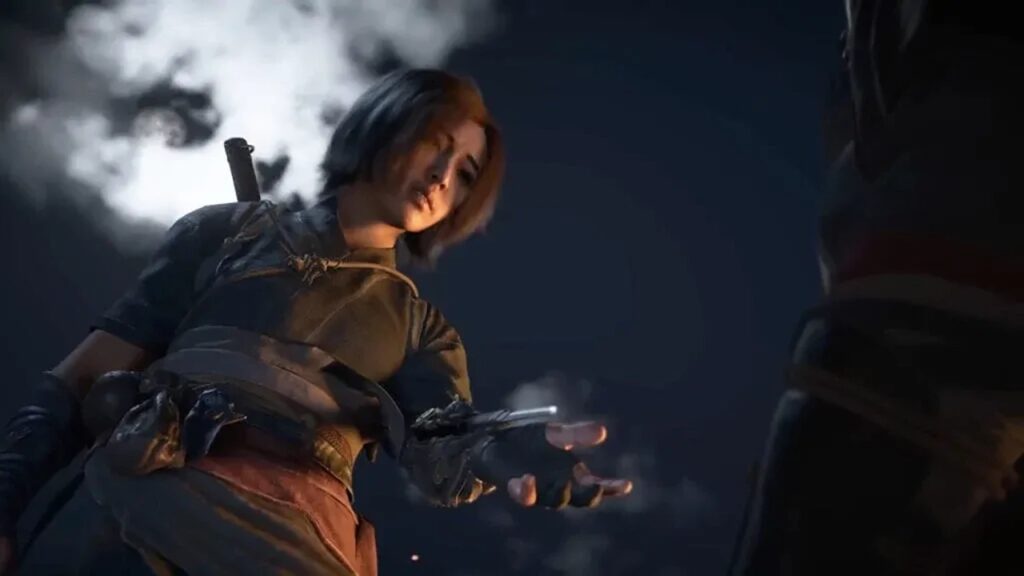
- Mounts and traversal methods are influenced by terrain and faction control.
3. The Protagonists: Who Leads the Shadows?
The narrative is led by two compelling protagonists: Naoe, a skilled shinobi, and Yasuke, the historical African samurai. Each protagonist brings a unique perspective, and that is why Naoe specializes in stealth, using her katana and kusarigama , while Yasuke excels in combat with his long katana and naginata . You see their backstories, motivations, and personal struggles intertwine, drawing us deeper into their journey.
With that in mind, Naoe and Yasuke, as playable protagonists, significantly influence the larger narrative through their actions and choices. Yasuke’s experience as the first Black samurai shapes his perspective , with developers indicating that the game won’t shy away from addressing the weight of this subject matter. These details about the main protagonist make us empathize with the character, making his story even more interesting.
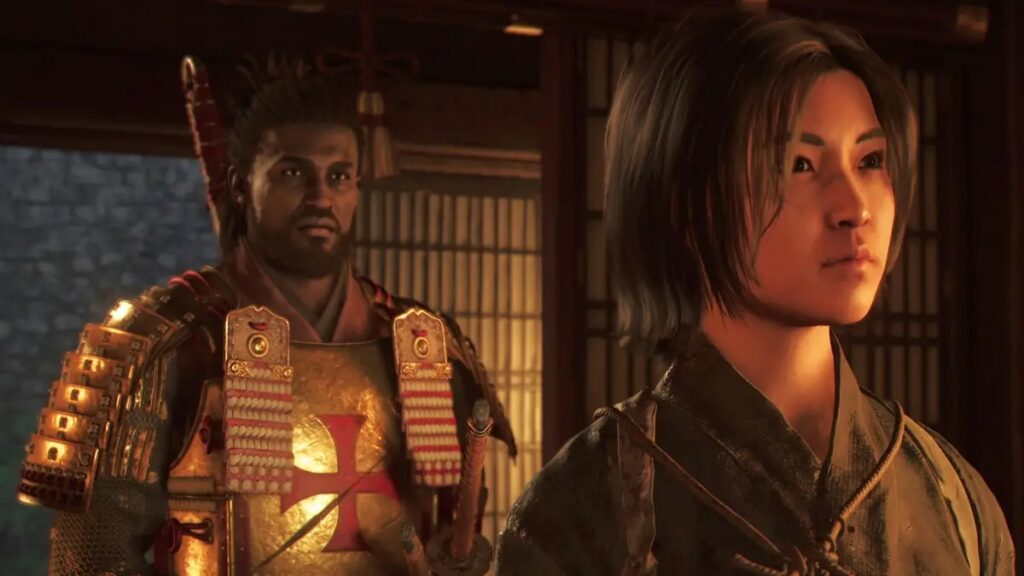
- Assassinations are cinematic, brutal, and deeply satisfying to pull off.
The dual protagonist system allows players to experience the story from different angles. This mechanic promises a more dynamic and immersive gameplay experience, especially since their values and methods set them apart from past Assassin’s Creed heroes. Their growth throughout the story promises to be a focal point of the game, as they learn to work together.
4. Supporting Characters: Allies and Enemies in the Shadows
1. Key Allies
Assassin’s Creed Shadows introduces an array of supporting characters who will either aid or hinder Naoe and Yasuke’s quest. The confirmed list of hidden allies includes Yaya, a Buddhist monk specializing in close-quarters combat, Gennojo, a thief with utility-based skills, and Katsuhime, a shinobi specializing in damage with a teppo. Other recruitable allies include Ibuki, Oni-Yuri, and Yagoro . Each of them has their distinct traits, abilities, and roles that shape the storyline.
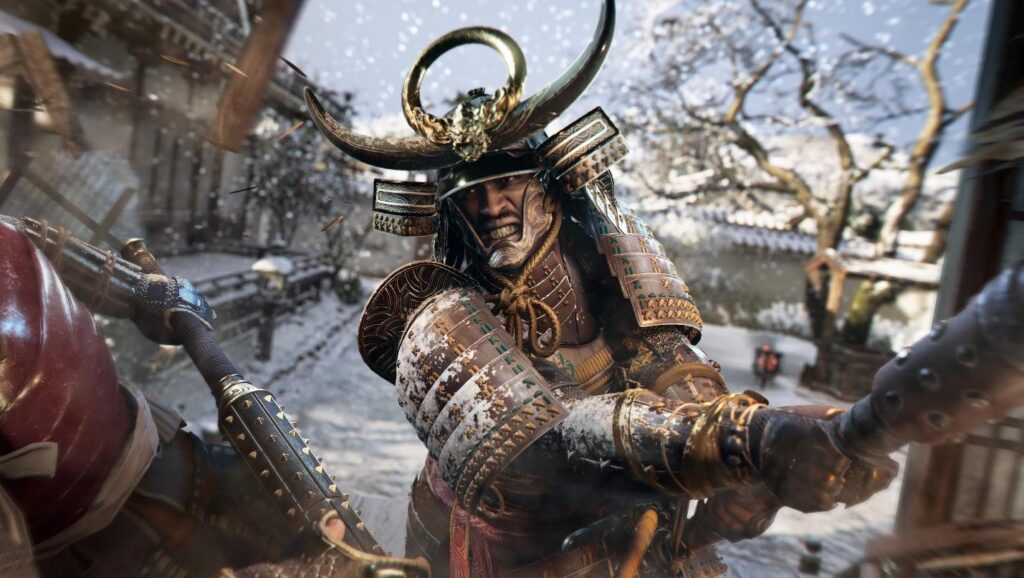
- Combat styles differ vastly: Yasuke charges into battles with heavy armor and powerful strikes, while Naoe uses precise strikes, agility, and ninja tools to stay undetected.
The allies aren’t just tools, they’re personalities. Their unique abilities and intriguing backstories add texture to the game, and as we work alongside them, their own motivations and potential conflicts promise to add depth. As players, we know these connections will enhance the storytelling and create meaningful bonds that make the game more captivating.
2. Villains and Antagonists
On the flip side, the villains and antagonists in Shadows drive the plot forward with their complex motivations and machinations. Key among these is the Shinbakufu, a shadowy organization pulling the strings of feudal Japan, led by the deposed shōgun Ashikaga Yoshiaki. In addition to that, the characters of Akechi Mitsuhide and Oda Nobunaga cannot go unnoticed It is also worth remembering the historical figure, slaver, and member of the Templar Order, Duarte de Melo. These characters reflect the game’s themes and enhance the storytelling depth, weaving narratives that feel both epic and personal.

- Customize your own hideout and recruit a network of spies to aid in your missions.
Whether it’s morally gray characters or those with clear intentions, each antagonist has a significant impact on the Assassins, the Templars, and, of course, our protagonists. Their actions drive the story forward, creating a compelling sense of tension and anticipation. As players, we relish these nuanced portrayals, and we hope the game will provide us the villainous characters that we deserve.
5. Connections to Assassin’s Creed Lore
1. Historical Impact and Real-World Parallels
Assassin’s Creed Shadows seamlessly integrates historical events into its narrative , which draws inspiration from the real-world parallels of 16th-century Japan. Key figures such as Oda Nobunaga and Yasuke are woven into the story , and historical details shape the missions, environments, and interactions within the game. It’s these historical elements that give the narrative its authenticity and weight.
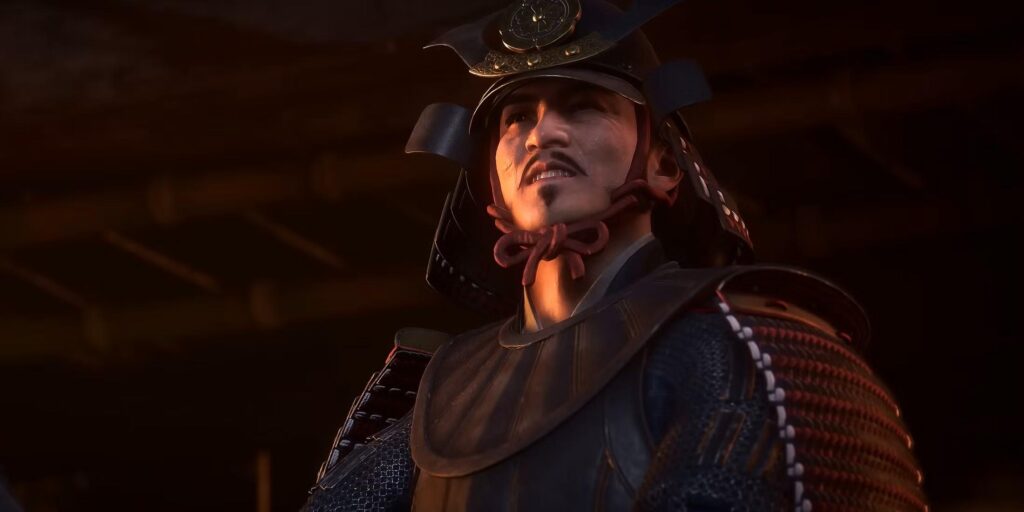
- The presence of historical figures in the game’s story has given it significant depth.
By examining historical events, Shadows provides a unique perspective that merges historical fact with emotional fiction. The meticulous research that Ubisoft puts into these historical elements is what we value in the franchise since we love the historical aspect of Assassin’s Creed. As fans, these elements add depth and meaning to our gaming experience.
2. Connections to the Larger Assassin’s Creed Universe
Connecting Shadows to the larger Assassin’s Creed universe involves exploring its established lore. For example, Assassin’s Creed Shadows includes Alvaro Catarribera, an excommunicated Spanish Assassin who started Japanese branch of the Brotherhood. The game explores the overarching conflict between Assassins and Templars, and though some sources suggest a less prominent role for Pieces of Eden , others speculate on their integration with Japanese mythology. The art book has leaked at least one piece of eden that is present in the game .

- Go on an adventure and explore the beautiful land of Japan.
Despite developer comments suggesting a grounded approach, there’s still potential for these elements to play a role in expanding the lore . These mysteries make us look forward to how the developers will address lingering questions or introduce new ones. Whether Shadows delivers answers or introduces new mysteries, its approach to lore is sure to spark debate and speculation within the community.
6. Themes in the Storytelling: What Sets Assassin’s Creed Shadows Apart?
Assassin’s Creed Shadows distinguishes itself by focusing on intricate themes such as power, loyalty, and the effects of secrecy on relationships. The game may be taking a darker tone compared to previous entries, exploring moral ambiguities and the consequences of difficult choices. The blend of these themes creates a gripping narrative that resonates emotionally and philosophically with players.
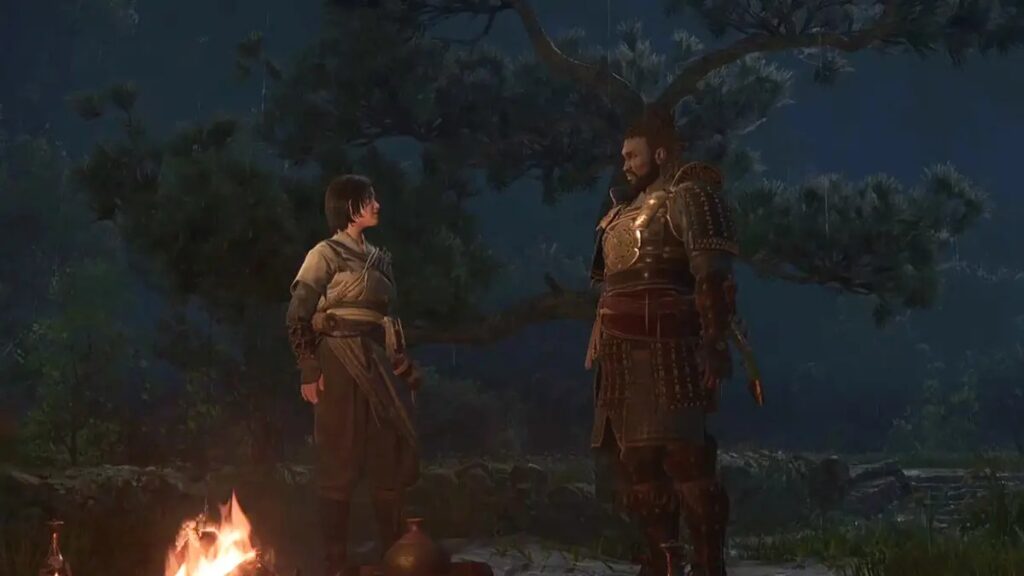
- Players must balance direct confrontation with careful infiltration, using scouting, environmental awareness, and timing to execute flawless assassinations.
Comparing Shadows to previous Assassin’s Creed games, the game’s historical setting and character-driven plot offer something unique. The personal tales of Naoe and Yasuke create a narrative that highlights human connection, particularly through found-family relationships. By examining how power and loyalty affect these personal relationships, Shadows ensures we’re emotionally invested in the characters.
The narrative director of the game emphasized the core theme of the game that includes the importance of community and chosen family . It makes us feel a personal connection to our protagonists, who also try to navigate through their lives, which adds an extra layer of engagement.
7. Narrative and Gameplay Integration
Story beats are seamlessly tied to gameplay in Assassin’s Creed Shadows. Stealth missions reveal critical plot points and environmental objects unlock new lore. For example, dialogue choices affect romances and outcomes of smaller targets when Canon Mode is off . By allowing our actions to shape the narrative, Shadows enhances immersion and makes every decision feel meaningful.
The side quests, collectibles, and activities connect back to the main narrative. The player will hear rumors or save random people, which can be the starting point of side quests . The integration of the narrative into gameplay elements is more than just window dressing, it is also critical to enriching the story . This kind of narrative integration is how Shadows employs player interaction to convey its story.

- NPCs react realistically to your reputation and choices.
The presence of allies is also important because their recruitment missions depend on the choices that the players make. In a way, you will have to be more cautious to recruit the ally you want, which creates another form of integration into the gameplay.
8. Conclusion: Shadows in the History of Assassin’s Creed Stories
In conclusion, Assassin’s Creed Shadows stands out in the franchise with its intricate narrative, complex characters, and rich historical setting. Its seamless integration of gameplay and storytelling, its approach to established lore, and its thematic depth sets it apart. This game isn’t just about revisiting familiar Assassin’s Creed elements but taking the franchise’s storytelling into new territory.
The setting, characters, themes, and lore converge to create a story that not only excites but also immerses fans deeply. We are eager to hear your thoughts on Assassin’s Creed Shadows’ story and how it ranks among your favorite narratives from the series. Let’s share our experiences and keep the discussion alive!
Go through the stories of beloved video games via Gamerative.
FAQs About Assassin’s Creed Shadows Story
1. Will past Assassin’s Creed characters appear in Assassin’s Creed Shadows?
While Assassin’s Creed Shadows is set in the same universe, it features a new cast of characters and a standalone story, so appearances from past protagonists are unlikely.
2. How does the dual protagonist system affect the storyline?
The dual protagonist system allows players to experience the story from two different perspectives, each with unique skills and motivations, enhancing both the gameplay and the narrative depth.
3. Are there romance options in Assassin’s Creed Shadows?
With Canon Mode off, players can influence romances and smaller character interactions through dialogue choices in side missions and ally quests, adding personal touches to the story.
4. Will Assassin’s Creed Shadows continue the modern-day storyline?
While the game will have a modern-day component through the Animus, developers have indicated that the focus will be on the historical narrative with the modern-day story taking a backseat.

